Oldest living MLB player turns 100, vividly recalls facing Dodgers in 1953 World Series

Art Schallock has the easy laugh of someone as delighted with his current circumstances as he is with his memories.
“I’m still alive and I’m healthy,” he said, prefacing the words with a chuckle.
Schallock, the oldest living former Major League Baseball player, certainly has had the last laugh. He celebrated his 100th birthday with a party Thursday at Cogir on Napa Road, the Sonoma assisted-living facility he calls home.
The Dodgers, who signed Schallock in 1946, sent him a gift jersey: No. 100, of course. A representative from the New York Yankees — who won three World Series with Schallock on the roster — made a surprise visit and gave him a jersey signed by the 2024 team.
The party, festooned with Schallock’s substantial memorabilia collection, was open to the public and drew a large crowd. Sonoma being Sonoma, wineries set up booths and ballpark food — hot dogs, peanuts and popcorn — was gratis. The mayor said a few words. Folks lined up to shake Schallock’s hand. He signed baseballs, books and photos, engaging in conversation and laughing amiably while sipping first a glass of wine, then a beer.
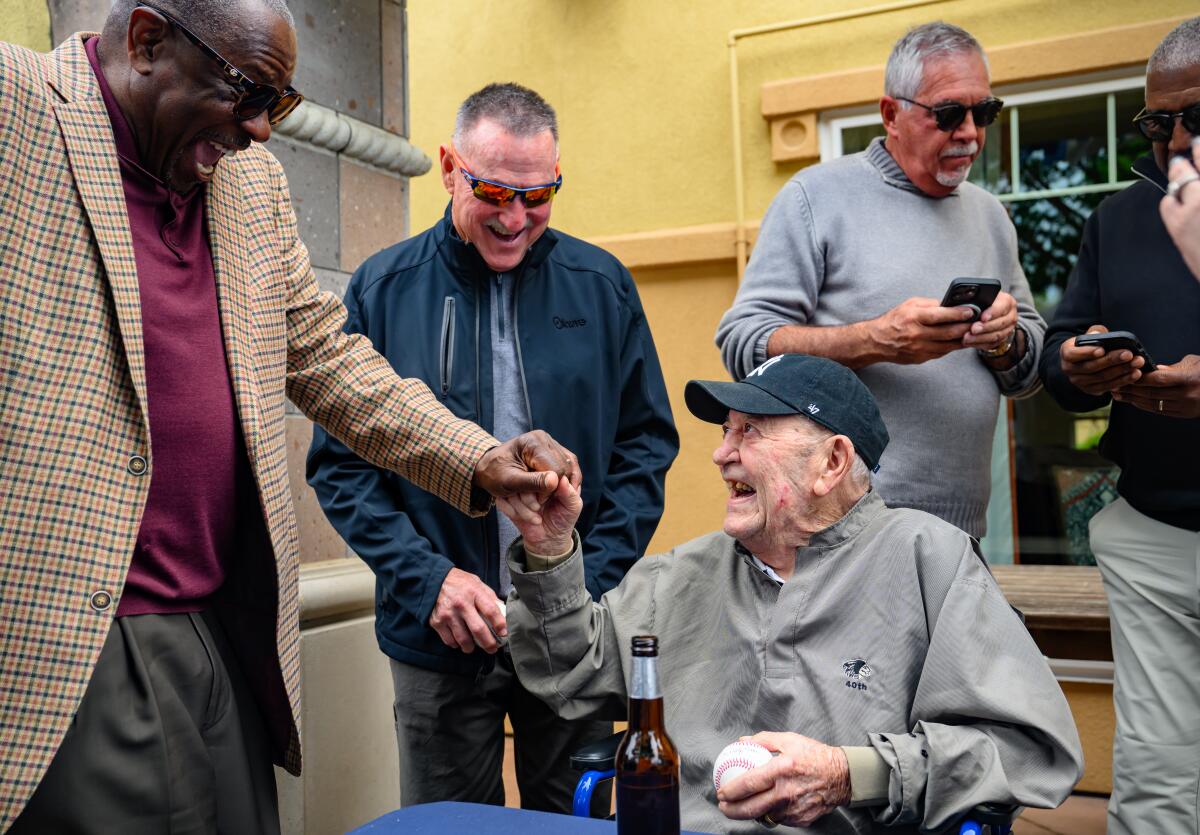
Former MLB manager and player Dusty Baker, a longtime Northern California resident, dropped by to congratulate Schallock, whose memories remain as clear as a summer evening playing under the lights at Yankee Stadium, which he did from 1951 to 1955. In fact, his favorite memory is of stepping into the Bronx cathedral of baseball, “The House That Ruth Built,” for the first time.
“I was thrilled just to walk into Yankee Stadium,” he said during an interview with The Times. “I got to play with Joe DiMaggio, Yogi Berra, Mickey Mantle. It was a pleasure watching those guys play. They were top baseball players, just tops. I was in awe.”
Carl Erskine, one of the last surviving Brooklyn Dodgers and a mainstay of a pitching rotation that carried the team to four World Series, has died at 97.
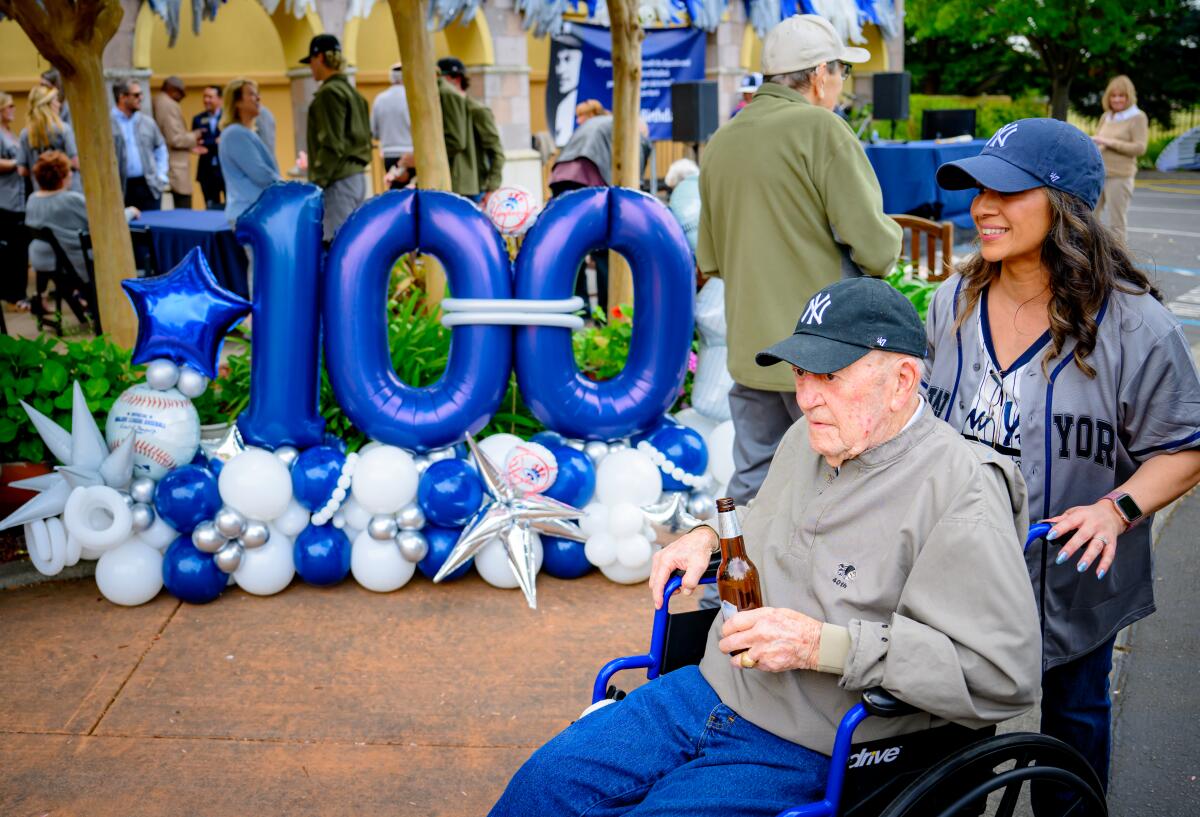
Nearly five years after signing with the Brooklyn Dodgers, the left-handed pitcher was traded to the Yankees in 1951, where he played under legendary manager Casey Stengel, roomed with Hall of Fame catcher Berra, and learned his craft under steady veteran hurler Allie Reynolds.
“Yogi taught me how to pitch to major league hitters,” Schallock said. “He knew all the hitters, their strengths and weaknesses.”
Schallock couldn’t recall whether Berra broke out any of his famous Yogi-isms such as, “It ain’t over til it’s over,” or “When you get to a fork in the road, take it.” But he vividly remembered fetching Berra’s favorite reading material — comic books.
“He called them his funny books,” Schallock said. “I’d go down and buy a few and bring them back to the hotel room for him.”
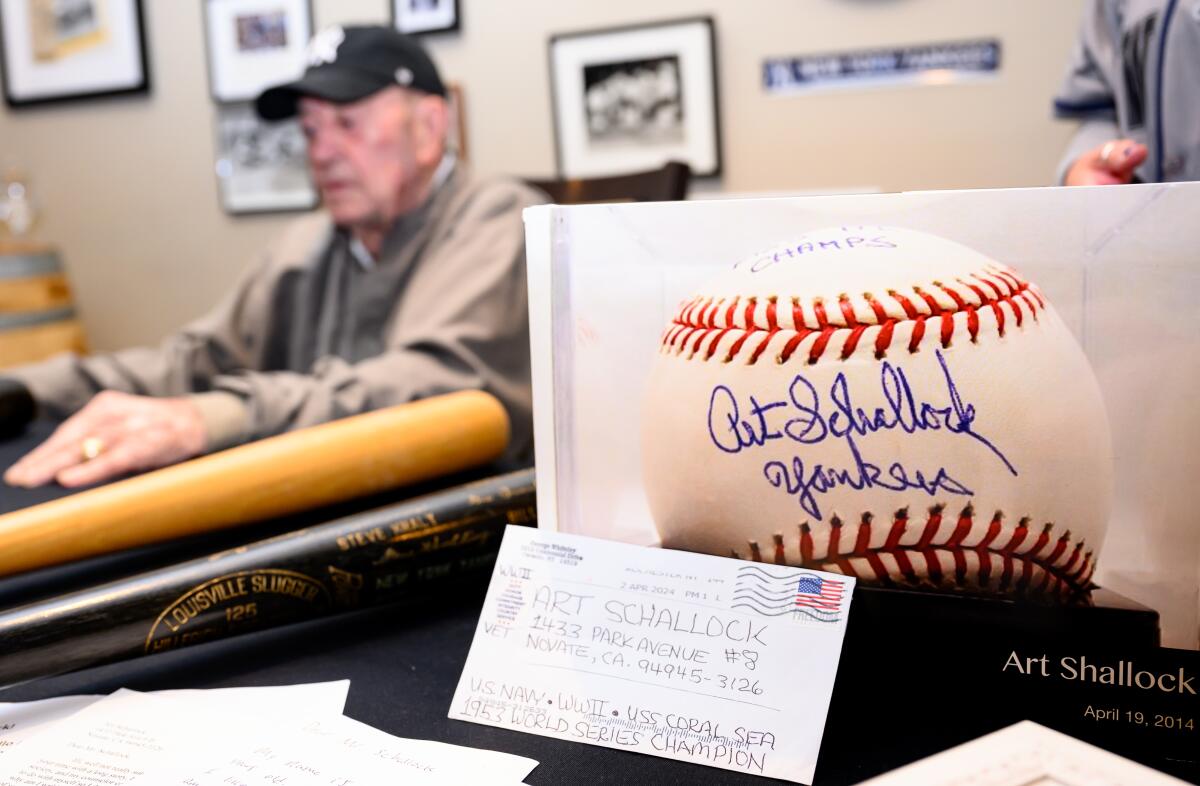
Undersized at 5-foot-9 and 160 pounds, Schallock relied on guile, a sharp-breaking curveball and deceptive changeup. He was called upon in Game 4 of the 1953 World Series against the Dodgers, entering in the seventh inning to face Jackie Robinson, Gil Hodges, Roy Campanella, Duke Snider and Carl Furillo.
He retired Robinson on a lineout and struck out Hodges before walking Campanella and giving up a run-scoring double to Snider. That was four consecutive Hall of Famers before facing Furillo, who grounded out. Schallock pitched a scoreless eighth, retiring Billy Loes, Jim Gilliam and Pee Wee Reese.
All in all, quite a dalliance with the Boys of Summer.
Manager Whitey Herzog forged a Hall of Fame career guiding the St. Louis Cardinals and Kansas City Royals. He also had a stint in the Angels front office.
“That was quite a thrill,” Schallock said. “The reason Casey Stengel called on me to pitch was that I was the only one in the bullpen who knew the Dodger hitters. I had played with the Brooklyn players and grown up with them.”
Schallock was familiar with the Dodgers because he spent 4½ seasons in their farm system, advancing to triple-A Montreal — where teammates included future Cy Young Award winner Don Newcombe and first baseman Chuck Connors, who went on to star in “The Rifleman” — and the Hollywood Stars.
When Schallock was traded to the Yankees for catcher Eddie Malone, pitcher Bob Landeck and cash July 12, 1951, they made room on the roster by sending Mantle, then a slumping rookie, to the minors. Mantle was soon called back up and he and Schallock became friends.
“Back then he drank root beer floats,” Schallock said.
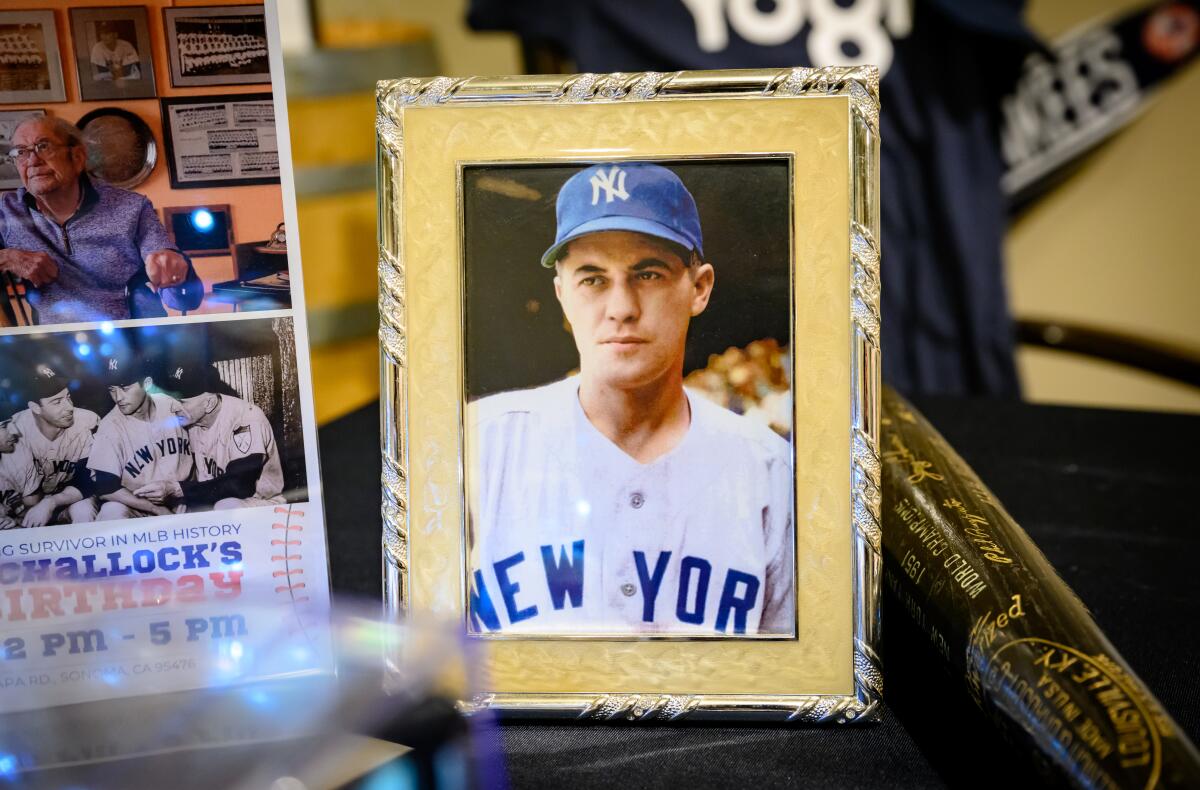
Four years later Schallock was with the Baltimore Orioles and faced Mantle, who by then was a feared slugger. The switch-hitter pulled an 0-1 pitch far beyond the left-field wall and grinned at Schallock as he rounded the bases.
In all, Schallock played alongside seven Yankees Hall of Famers (DiMaggio, Berra, Mantle, Enos Slaughter, Johnny Mize, Phil Rizzuto and Whitey Ford) and another with the Orioles (Brooks Robinson). With the Dodgers, he spent spring training with another handful of players enshrined in Cooperstown.
As for opponents, one particular Hall of Fame hitter didn’t fare well against Schallock. Ted Williams was 0 for 2 in regular-season play and also hitless in spring training meetings. Schallock said he got Williams to chase changeups and curveballs out of the strike zone.
“I changed speeds and kept the ball down,” he said.
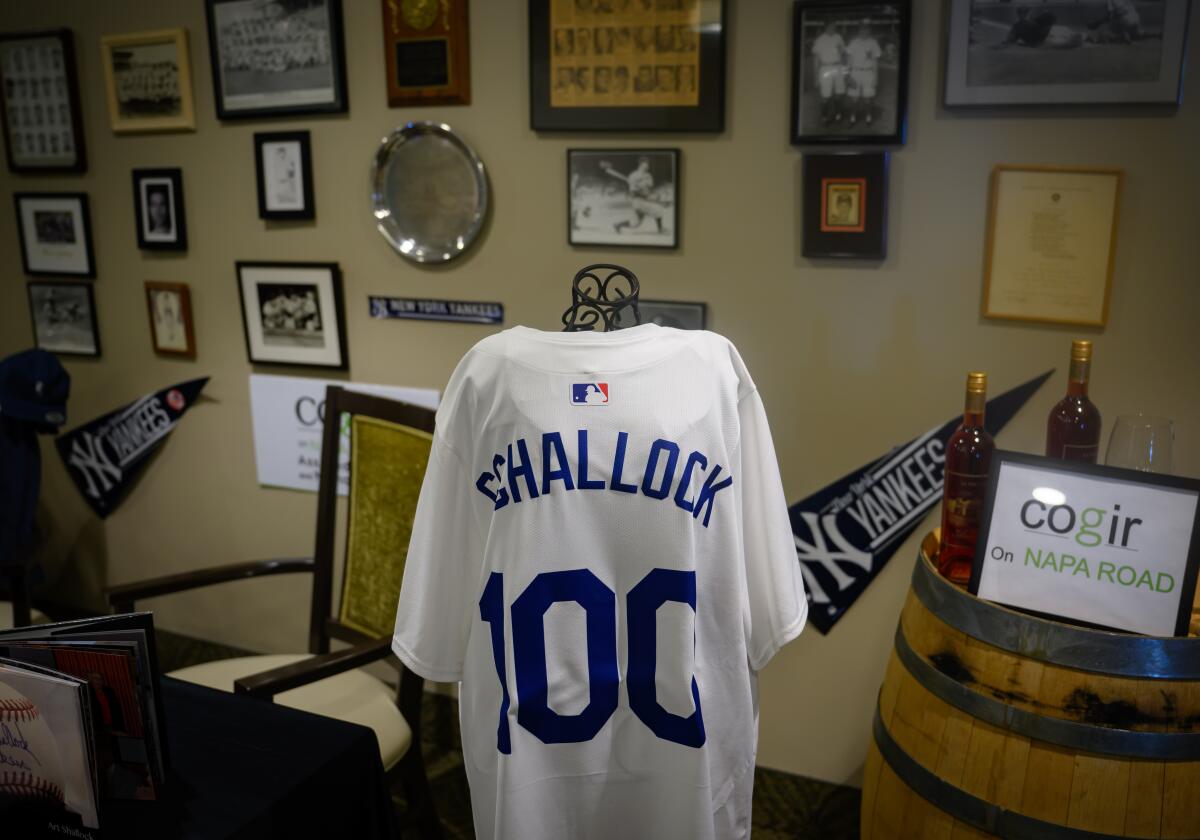
After finishing 1955 with the Orioles, he set career highs with 24 starts and 163 innings in triple-A a year later before retiring at age 32. He and his wife eventually moved to Northern California, where he’d grown up.
Athletes and entertainers lose money because they’re inattentive, make risky investments and overspend on loved ones and expensive toys, financial experts say.
Schallock’s major league career might have begun sooner, but — like so many players — he served in the military in World War II. Two weeks after graduating from Tamalpais High School in Mill Valley, he was drafted into the Navy and spent three years as a radio operator on the USS Coral Sea, an aircraft carrier deployed in the Pacific.
After returning home, Schallock had a blind date with Dona Bernard, and they married a year later. The couple had two daughters and were married 76 years until Dona passed away a year ago.
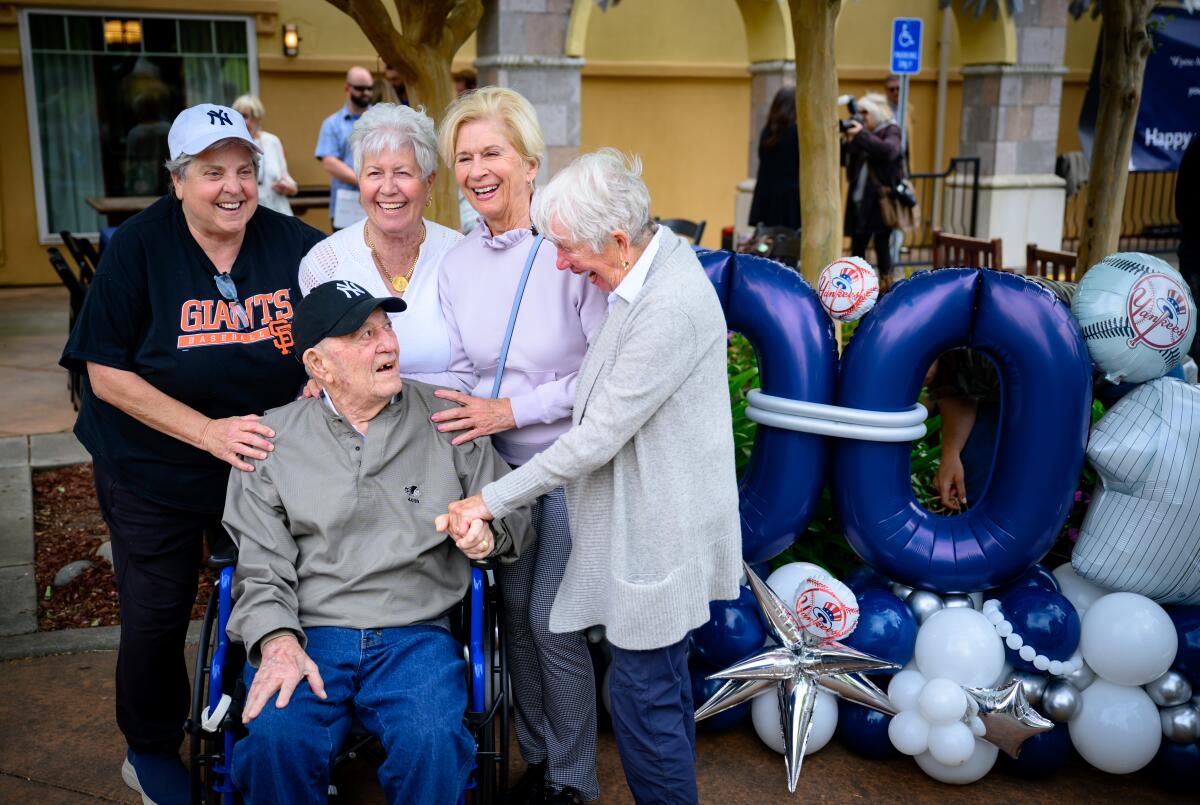
Schallock became the oldest living major league player when George Elder — who played in 41 games in 1949 — died at age 101 in 2022.
According to the Baseball Almanac, 78 former players are in their 90s and 17 are at least 95. No. 2 on the list at 99 is Bill Greason — a pitcher who made three appearances in 1954 — and No. 3 at 98 is Bobby Shantz — a pitcher whose lengthy career included winning the American League Most Valuable Player award in 1952.
Nobody else on the list of former players ages 90 and over has three World Series rings. Someone at the party mentioned that Schallock was wearing a championship ring.
He grinned and replied, “Only one! My daughter has another one, and I don’t know where the third one is.”
Freelance reporter Bob McGregor contributed to this report.
More to Read
Go beyond the scoreboard
Get the latest on L.A.'s teams in the daily Sports Report newsletter.
You may occasionally receive promotional content from the Los Angeles Times.














